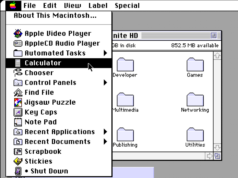
There’s a relatively new term floating around the working world: productivity paranoia. It was first coined by Microsoft in 2022 to refer to the concern among managers that employees aren’t being productive enough when working remotely. To that end, most of the available advice on easing productivity paranoia caters to managers, but misses the fact that remote workers feel pressured to prove they’re being productive. That pressure can result in employees opting not to take breaks or spending time preoccupied that their superiors aren’t aware of how much they’re really doing. If you’re a worker feeling stressed about whether your boss recognizes your hard work or might be experiencing some productivity paranoia, this one’s for you.
What is productivity paranoia?
According to Microsoft, 85% of workplace leaders surveyed said that the shift to hybrid work was making it harder to be confident that employees were being productive. Productivity paranoia, then, is “where leaders fear that lost productivity is due to employees not working, even though hours worked, number of meetings, and other activity metrics have increased.”
Tips for managers usually suggest building trust within teams and verifying outputs from workers to overcome this paranoia, but this doesn’t leave much room for what employees themselves can do to curb their own paranoia about their bosses’ paranoia. It is, frankly, a lot of paranoia all around, even though research has shown working from home can actually increase productivity—and all that paranoia can actually be bad for productivity!
“If workers are preoccupied with worrying about how productive they appear, it may lead to burnout or disengagement with the work at hand,” says Michelle Reisdorf, district president at international human resources consulting firm Robert Half. “Not only could work suffer, but it may also negatively impact office or team morale.”
How you can deal with productivity paranoia
If managers are worried about productivity and workers are so worried about appearing productive that they lose productivity, it’s an issue. So what can you do to combat the problem, as an employee?
First, Reisdorf says managers and workers need to have regular touchpoints and an open line of communication to align on projects, expectations, and progress, as well as address worries and issues. That’s largely on leadership to establish, but you can do your part by starting regular career pathing conversations, expressing interest in professional development opportunities, and volunteering to lead or contribute to projects. Just speaking up on Slack can go a long way here; you don’t have to contort yourself to appear engaged.
It also helps to have concrete evidence of your productivity and successes, which you can point to in these conversations you initiate or during regular check-ins and reviews. Try setting monthly goals for yourself, storing them in a specified folder or drive (known as a “single source of truth”), and performing personal reviews at the end of each month, documenting all your wins and achievements in the same folder. Committing now to compiling a record of your productivity month by month will serve a few purposes: First, you’ll have something to point to immediately if you are ever asked (or feel compelled) to show how much you get done when working remotely. Second, by seeing your wins written down somewhere, you’ll feel less anxious about your performance and recognize how much you really are doing.
Speaking of reducing that anxiety, Reisdorf pointed to Robert Half’s 2023 State of Work survey, which revealed that 82% of managers who oversee hybrid teams feel in-office and remote employees have the same career development options. You’re not losing out on anything by not being there in person, which can help you feel a little better about how you’re being perceived. Just remember to stay communicative and keep records of how much you get done. Then, take a deep breath. You’re far from alone in feeling this way, even if you can’t commiserate with colleagues face-to-face.








